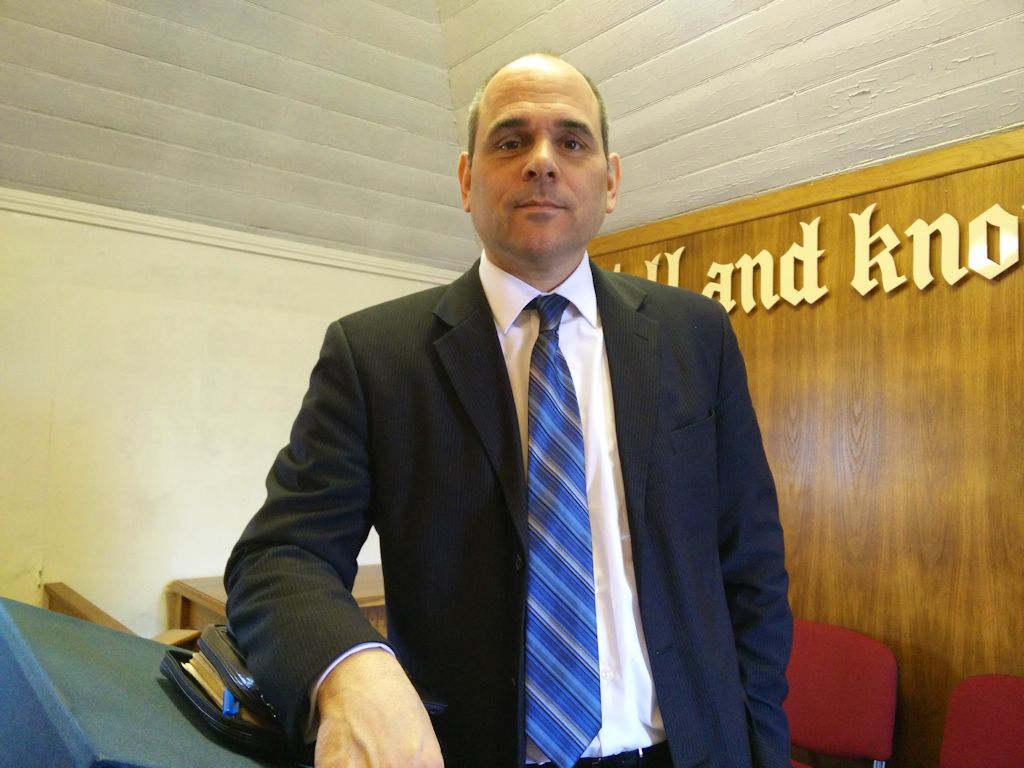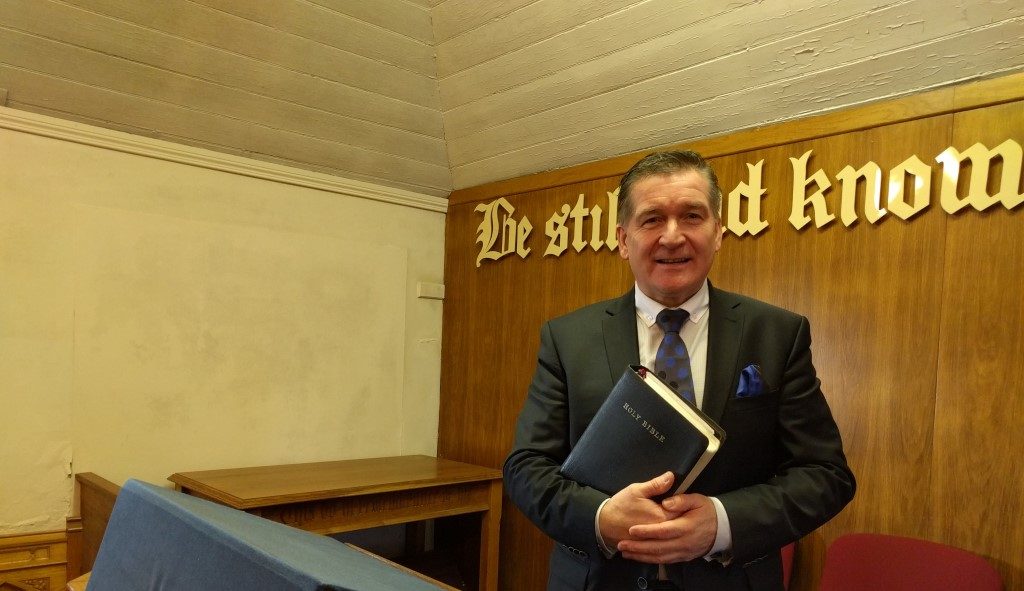Table of Contents
As a Bible believing Protestant I sincerely respect the right of people to document their views and opinions. This principle of civil and religious liberty is enshrined within the great tenants of our favoured nation.
But the freedom to express our opinion does not, in and of itself, immunise us from a thoughtful analysis by those who hold to a different interpretation and application of the subject that is being considered.
Mr Alban Maginness, a former barrister, MLA and Lord Mayor of Belfast, recently wrote in the Belfast Telegraph that the Reformation was “a tragedy that still divides us”. According to the Oxford dictionary the word ‘tragedy’ means , “An event causing great suffering, destruction, and distress…” What Alban Maginness is arguing for is that the Reformation caused great suffering, destruction and distress for the Roman Catholic Church from the 16th Century to the present day? From a Roman Catholic perspective the reformation is viewed as a “tragedy”, because it exposed the church’s intimidating system of ritual and penance to earn salvation, to be contrary to the Holy Scriptures.
However, from the Protestant perspective the Reformation was neither “tragic nor an unfortunate misunderstanding”. In fact it was a glorious movement of the Spirit of God, because truth triumphed over error, light defeated darkness and the Scriptures exalted over manmade traditions.
Mr Maginness’ article on the Reformation exposes the reasons for the Protestant Reformation five hundred years ago and presents a challenge for all, to examine the message that lay at the heart of Martin Luther’s quest for personal peace with God.
The Protestant Reformation marks the beginning of the modern era and as such, has shaped the world in which we live. While the movement revolutionised European politics, law, literature ,science, and individual conscience, it was rooted in a renewed spiritual understanding of man’s relationship to God. Martin Luther and the other reformers did not introduce a new teaching but rather rediscovered and re-emphasised the truths of the Gospel as taught by Christ, the Apostles and the early Church, namely, that personal salvation is by grace alone, through faith alone, in Jesus Christ alone.
Therefore, the reformation was first and foremost a rediscovery of biblical truth about personal salvation and it was this message primarily that was proclaimed and embraced across Europe.
It is regrettable that Mr Maginness is either ignorant of, or willfully ignores the fact, that the central objective of the Reformation is summarised in the question, “How then can man be justified with God? or how can he be clean that is born of a women” ? Job 25:4.
In attempting to address the spiritual needs of men, Mr Maginness resorts to the teaching of the Church about penance, prayers, pilgrimages, purgatory and payments for masses etc, to merit favour with God, the same route that multitudes of his co religionists followed in pre Reformation days and many still follow today.
His quotation from Diarmaid MacCulloch’s about the Reformation in Europe confirms, that his desire for and his participation in a counter Reformation has not been diluted by 500 years of history. The stated aim of the ‘counter reformation’ was to codify, Roman Catholic doctrine and to, ‘recreate authentic Roman Catholic Christianity’.
The Council of Trent, along with Vatican 1 and 2, and the Catholic Catechism of 1994, insightfully, unveils the thought process of those who seek to elevate Church Authority above Scripture Alone and maintain the promotion of traditions, practices and beliefs, that spiritually enslaved millions in the ‘Dark Ages’.
It is therefore evident that Mr Maginness’ article is both a misinterpretation and a misunderstanding of the 16th Century Reformation.
The true religion of the Protestant Church is Scripture Alone. The Word of God remains our sole rule for faith and practice; and in its revelation we are told how a man or woman can be justified before God, as Galatians 2:16 states; “knowing that a man is not justified by the works of the law, but by the faith of Jesus Christ, even we have believed in Jesus Christ, that we might be justified by the faith of Christ, and not by the works of the law: for by the works of the law shall no flesh be justified”.
2nd Corinthians chapter 5 verses 20 and 21. “Now then we are ambassadors for Christ, as though God did beseech you by us: we pray you in Christ’s stead, be ye reconciled to God. For He hath made Him to be sin for us, who knew no sin; that we might be made the righteousness of God in Him”.
In this article Mr Maginness goes on to observe that, “In particular, a common understanding about the doctrine of justification by faith has now been reached between the Catholic Church and the Lutheran Churches and others.” He is heartened by the fact that, “… ecumenical growth over the past century has led to a healthy and mature reconsideration of the Reformation by all and an easing of the inter-Church tensions.”
Sadly, within ‘Christendom’ today there is a devilish, ecumenical attempt to make out that both Roman Catholics and Protestants accepts the same doctrine of justification by faith. They may do, as ‘justification by faith’, is not the issue and was not what the Reformation was about.
The Reformation was about ‘Justification by faith ALONE’.
This is altogether different and is the all important matter. The example of the Lutherans highlights the compromise of today when so called Protestant denominations have sold out to Rome and gone back to spiritual darkness.
There are two points that Roman Catholicism has never conceded, and never will concede, namely that Justification is by faith ALONE and that Justification is an ‘ACT’ of God’s free grace, separate from Sanctification, which is a process. These are the two points that the Lutherans have sold out on, along with other ecumenical and apostate Protestants.
At the Council of Trent (in 1547), the Roman Catholic Church responded to the Protestant Reformation, including the doctrine of justification by faith. The Canons and Decrees of Trent represent the official teaching of the Catholic Church to this day. The Second Vatican Council in the 1960’s declared these doctrines “irreformable.” Trent did not deny that we are saved by God’s grace through faith. But it added works to faith by combining justification (right standing with God) with sanctification (our growth in holiness subsequent to being justified) and by making justification a process that depends in part on our good works. To quote:
“If any one saith, that by faith alone the impious is justified, in such wise as to mean, that nothing else is required to cooperate in order to the obtaining the grace of Justification, … let him be anathema. (Session 6, Canon 9, in Philip Schaff, The Creeds of Christendom [Baker], 2:112.)”
The Roman Catholic church in her most recent Catechism of 1994 defines Justification as: ‘The grace of the Holy Spirit has the power to justify us, that is, to cleanse us from our sins and to communicate to us “the righteousness of God through faith in Jesus Christ” and through Baptism’. ‘Justification is conferred in Baptism, the sacrament of faith’. ‘Justification is not only the remission of sins, but also the sanctification and renewal of the interior man’.
This was the position stated at the Council of Trent in 1547, when Luther’s rediscovered Biblical teaching on ‘Justification by faith alone’ was taking root across Europe and it is still the official Roman Catholic position to this day. Roman Catholicism has not changed one iota of her beliefs on the doctrine of Justification. It is compromising Protestants who have changed. Rome still refuses to accept that Justification is by faith alone and is an act of God’s free grace. In fact its doctrines are worse now than in Martin Luther day, given that papal infallibility was added in 1850s and the bodily assumption of the virgin Mary in the 1950s.
The true Biblical and Protestant teaching on Justification is summarised in the Westminster Shorter Catechism, which states that:
Justification is an act of God’s free grace, wherein he pardoneth all our sins, and accepteth us as righteous in his sight, only for the righteousness of Christ imputed to us, and received by faith alone.
See Romans 3:23-25 and Romans 4:5
Towards the end of Mr Maginness’ article he quotes Christ’s words in John 17:21 and highlights his prayer for oneness. However, this wasn’t a prayer for an outward organisational unity, but an organic spiritual unity that applies only to those who are truly His, by virtue of the new birth, and not to those who merely take His name, but have no possession of salvation through saving faith alone, in Christ alone.
Many throughout the world remain thankful to God, for the day in Martin Luther’s life when he accepted the most liberating message ever to fall upon the ear of mankind, “THE JUST SHALL LIVE BY FAITH”. Not by the Church: not by its creeds, but in accepting the all atoning work of the Lord Jesus Christ on the Cross at Calvary, who cried out, ‘IT IS FINISHED’. Only through our Lord Jesus Christ can we have peace with God.
I therefore, thank God that many true believing Christians within the province and beyond, ‘have not lost the passion and energy’ for the 5 great reformational solas re-emphasised at the reformation, namely Scripture Alone, by Grace Alone, in Christ Alone, through Faith Alone, to the Glory of God Alone. In Mr Maginness’ eyes the reformation may be an unfortunate tragedy and a scandal, but in the eyes of Bible believers the Reformation was and still is the chiefest blessing God has bestowed upon this world since the Day of Pentecost.
In His Service
Rev. David McLaughlin






